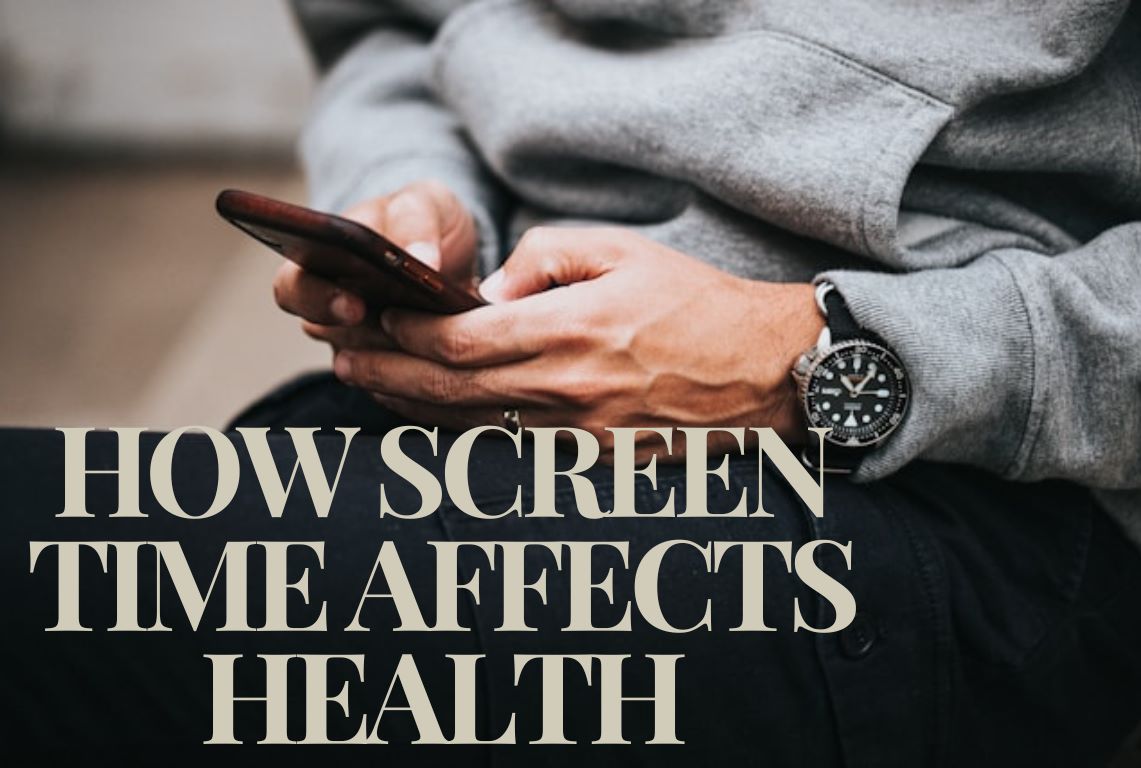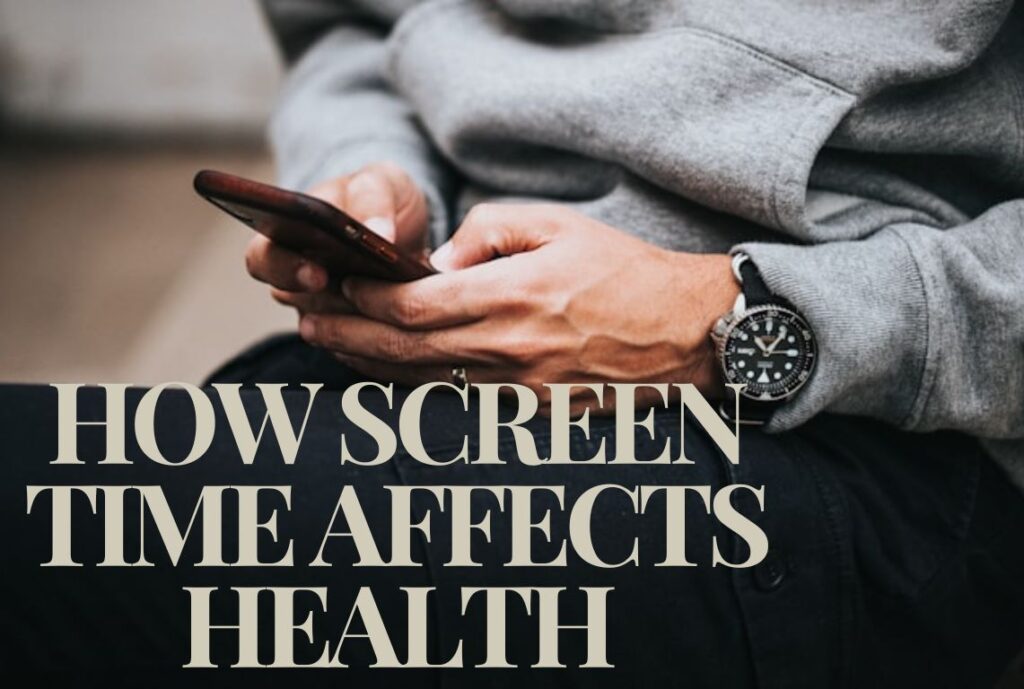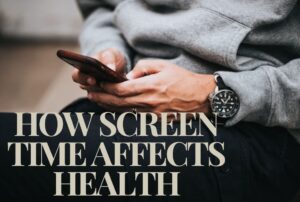

How screen time affects health is an important concern in today’s fast-paced world. Screens have become an integral part of our lives. From smartphones and laptops to televisions and tablets, we are constantly surrounded by them. While technology offers numerous benefits, excessive screen time can have detrimental effects on our physical and mental well-being. Let’s delve into the ways in which screen time impacts our health and explore strategies to reduce its negative consequences.
How screen time affects health:
The Impact of Screen Time on Physical Health
- Eye Strain and Vision Problems: Staring at screens for prolonged periods can lead to digital eye strain, characterized by symptoms like dry eyes, blurred vision, headaches, and neck pain. The blue light emitted by screens can also interfere with sleep patterns.
- Poor Posture: Slouching while using electronic devices can result in chronic back, neck, and shoulder pain. Which may be painful in the long run. Poor posture leads to other problems too.
- Obesity and Sedentary Lifestyle: Excessive screen time often coincides with reduced physical activity, increasing the risk of obesity, heart disease, and diabetes.
- Sleep Disruptions: The blue light emitted by screens can suppress the production of melatonin, a hormone that regulates sleep. This can lead to insomnia, fatigue, and impaired cognitive function.
The Impact of Screen Time on Mental Health
- Depression and Anxiety: Research suggests a correlation between increased screen time and higher rates of depression and anxiety, particularly among young people. Social comparison on platforms like Instagram and Facebook can contribute to feelings of inadequacy and low self-esteem.
- Addiction: Excessive screen use can lead to addiction, characterized by symptoms like withdrawal, tolerance, and impaired control over screen time.
- Reduced Social Interaction: Spending excessive time online can hinder face-to-face interactions, leading to feelings of isolation and loneliness.
- Attention Deficit and Impaired Cognitive Function: Constant distractions from notifications and social media can impair concentration, focus, and memory.
Protecting Your Health: Tips to Reduce Screen Time
- Set Limits: Establish specific time limits for screen use and stick to them. Use parental control features on devices to monitor and restrict screen time for children.
- Create Screen-Free Zones: Designate areas in your home, such as bedrooms and dining tables, as screen-free zones to encourage face-to-face interactions.
- Prioritize Physical Activity: Engage in regular exercise to combat the sedentary lifestyle associated with excessive screen time.
- Practice Good Posture: Maintain good posture while using electronic devices to prevent musculoskeletal pain.
- Manage Screen Brightness and Distance: Adjust screen brightness to reduce eye strain and maintain a suitable viewing distance.
- Use Blue Light Filters: Consider using blue light filters on your devices to minimize its impact on sleep.
- Mindful Screen Use: Be aware of how screen time affects your mood and energy levels. Take breaks from screens to engage in other activities.
- Seek Support: If you struggle with excessive screen use or its negative consequences, seek support from friends, family, or mental health professionals.
Remember: Moderation is the key. While technology offers numerous benefits, it’s essential to balance screen time with other activities that promote physical and mental well-being. By implementing these strategies, you can enjoy the advantages of technology without compromising your health.
Supporting Studies:
- National Sleep Foundation: Click here.
- World Health Organization: Click here.
By understanding the impact of screen time on our health and taking proactive steps to reduce its negative effects, we can create a healthier and more balanced lifestyle.
Disclaimer: This article provides general information and the author does not guaranty accuracy of the contents of this article and this article should not be considered as medical advice. It is essential to consult with a healthcare professional for personalized guidance.




